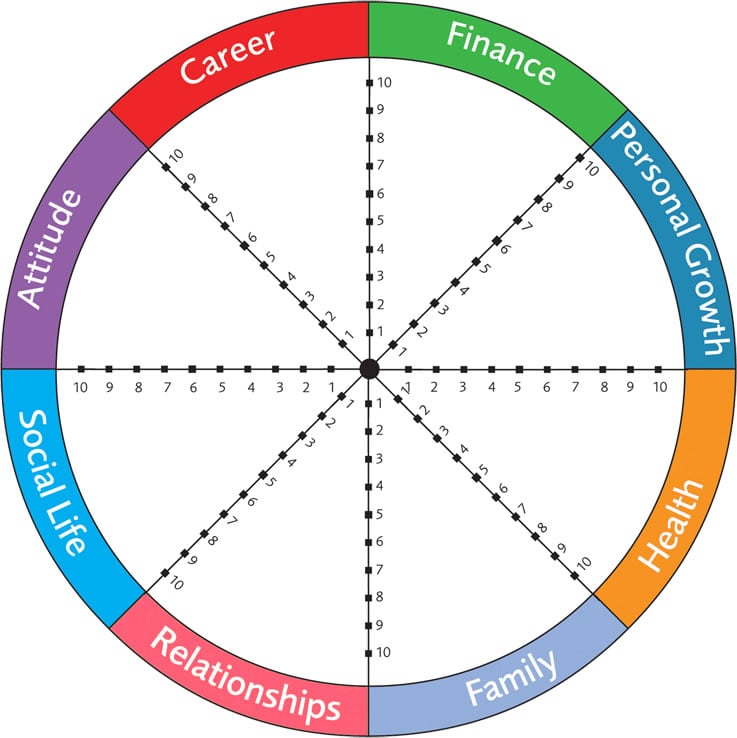
Today, we often compare ourselves to others. Compare yourself with who you were yesterday. We see rich, famous, good-looking, and successful people, and we want to be like them. The problem is this could be superficial thinking and counterproductive to our progression in life. There are eight or more dimensions to our lives.
We are unique individuals, and there is no one just like us. When we compare ourselves to others, we often see only one dimension of their life. However, there are eight or more dimensions to our lives. And there is something that you can do today that can make you slightly better tomorrow.
Jordon Peterson noted clinical psychologist suggests that you should "Compare yourself with who you were yesterday, not to who someone else is today."
Firstly, no two individuals are exactly alike. Science proves that no two individuals are alike. There are variations in the DNA due to the Crossing-over and Recombination during the DNA copying process.
A good example is identical twins. Even though you have trouble telling them apart, they have individual differences. Your identity is who you are and the characteristics that define you.
On the inside, each person has their thoughts, ideas, interests, hopes, and fears. And our tastes or choices are essential. So, you should not make your decisions lightly. The sum of these choices determines who we are and who we will become.
Also, the multiple choices we make to learn, experience, and develop as a person shape and mold us into what we want to be. Thus, each person is unique, memorable, and different from everyone else. Therefore, why would we want to be like someone else?
Secondly, when we desire to be like someone else, we usually only see one dimension of their life. Yet, we have eight or more dimensions to our lives. A singularity view is not a complete picture of a person.
For example, author Michael Hyatt has a method of identifying the multiple dimensions of our lives. He describes the "10 Domains of Life in his Full Focus Planner." I use his methodology in determining the dimensions of my life, and I have found it to be immensely helpful.
His ten domains (dimensions of life) are as the following:
Spiritual Parental Intellectual Social Emotional
Vocational Physical Avocational Marital Financial
As you can see, our lives are multidimensional. There are eight or more dimensions to our lives. And while you might recognize that someone has excelled in one dimension of their life, you might not be aware that they have failed in one to seven other areas.
So, instead of comparing yourself with someone else, consider comparing yourself to who you were yesterday. An effective way to start is to do a self-assessment on where you feel you are in each domain of your life today.
Here is just one example of a Life Wheel tool. You will notice this example has eight domains, not ten. You should choose which seven to ten fields you want to use to describe your life. Once you have completed that task, measure yourself on a scale of one to ten, with one being the lowest and ten being the highest score for each domain.

Your current focus will be evident after plotting your scores on the wheel. And you will identify the domains that need more attention. Also, note that it is normal for your priorities to change from time to time.
For example, when I was doing my undergraduate studies, my daily schedule was from seven a.m. until midnight every day. Humbly and with gratitude, I report that I was on a full music scholarship. However, I still had to do student loans to cover my living expenses. To minimize the student loan amount, I worked part-time 15 hours a week.
So, I would score myself a nine or ten on intellectual and vocational domains while in school. My Intellectual and vocational domains were my highest priorities at the time.
Also, for my financial domain, I scored myself a 4 or 5. I chose these numbers because I did all I could physically to earn an education while incurring the least debt. Had I chosen only student loans and no part-time work, I would have scored myself lower.
Now, how you score yourself on your domains is up to you. After plotting where you are on the Life Balance Wheel, make the necessary adjustments in your daily routine.
Thirdly, there is a simple truth that there is something that you can do today that can make you slightly better tomorrow. One way to become better is to consider making incremental changes.
In a previous article entitled How an Improvement Strategy is More Successful Than Goal Design I discuss incremental change. I share the success story of Sir Dave Brailsford and the UK Olympic Cycling Team.
Sir Brailsford committed to a strategy he referred to as "the aggregation of marginal gains." Brailsford said, "The whole principle came from the idea that if you broke down everything you could think of that goes into riding a bike and then improve it by 1 percent, you will get a significant increase when you put them all together."
I propose that you look at your domain scores from your Life Wheel Assessment. Then, prioritize which domains of your life you need to increase first, based on your current situation. There are eight to more dimensions to our life. If you took just one of your ten domains and were able to increase your score by one this month, you would have a 1% increase.
However, it is unreasonable to think that you can make improvements in all domains of your life simultaneously. But, over one year, it is possible. Only two to three fields will need a lot of attention. There is an interesting connection between this belief and the Pareto Principle.
The Pareto principle states that 80% of consequences come from 20% of causes (the "vital few") for many outcomes. For example, if 20% of car design flaws lead to 80% of crashes, you can identify and fix those flaws. Similarly, suppose 20% of your customers are driving 80% of your sales. In that case, you may want to focus on those customers and reward them for their loyalty.
We are unique individuals, and there is no one just like us. And our lives are not singular but multidimensional. There are eight or more dimensions to our life. However, we can do something today through the aggregation of marginal gains that will help us become better tomorrow. As Jordon Peterson suggests, "Compare yourself with who you were yesterday, not to who someone else is today."
Listening With the Intent to Understand, Not Reply
The Top Three Corporate-Culture Focus Areas for 2022 and Beyond
Why Ethical Behavior is More Profitable and Energizes Employee Engagement